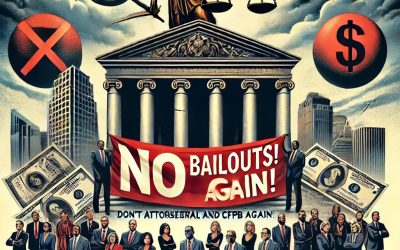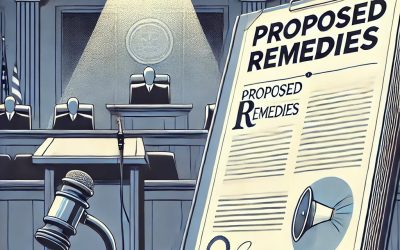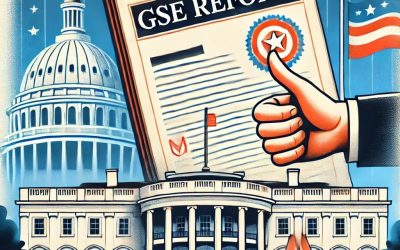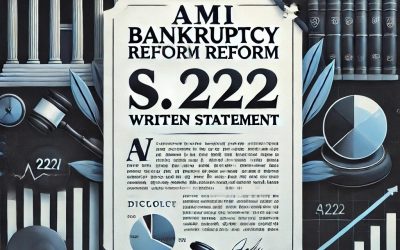AMI Issues
AMI Policies: A Two-Pronged Approach to Resolving Issues Facing the U.S. Housing Market
The Association of Mortgage Investors (AMI) is advocating a two-pronged approach to repairing and rebuilding the U.S. housing market:
- Keep responsible homeowners in their homes by avoiding unnecessary foreclosures.
- Revitalize the mortgage backed securities market by improving transparency and accountability.
This dual approach underscores the shared and aligned interests of U.S. homeowners and AMI.
1. Keeping Homeowners in their Homes
A responsible homeowner put into a mortgage he or she could not afford runs the risk of losing their home through foreclosure. Similarly, homeowners that owe more than the home is worth may decide to stop paying and walk away from the property. Such scenarios, faced by millions of homeowners today, represent affordability and negative equity issues. AMI’s focus is to address both of these issues and enable responsible homeowners to remain in their homes.
AMI has proposed and supports policies that result in principal reductions on first lien and second lien mortgages to restore equity for the homeowner and subsequently refinance the homeowner into a new FHA-insured mortgage they can truly afford.
AMI’s approach represents an enhancement to the Treasury/HUD HAMP (Home Affordable Modification Program) short term mortgage modification program, in which only a fraction of delinquent homeowners are involved and many homeowners whose mortgages are modified are at high risk for re-default as they remain saddled with enormous consumer and other debt.
AMI acknowledges the government’s claim that while meaningful modifications are preferable, not every homeowner can be saved by such efforts. In those instances where consumer debt is simply too high to allow the home owner to remain in their current home, AMI supports the use of short sales and other options to minimize damage to the homeowner’s credit and avoid the negative effects of foreclosure on the nation’s housing market.
2. Revitalizing the Mortgage Backed Securities Market
In the two-and-a-half years since the financial crisis began, it has become clear that the continued health of the securitization markets is crucial to both the U.S. economic recovery and the financial system as a whole. Mortgage investors provide the capital that makes homeownership an affordable option for millions of Americans, yet their interests have largely been neglected throughout the recent market turmoil.
The current financial crisis has highlighted major conflicts of interest in the securitization process. Such conflicts have lead to reduced transparency in the mortgage market, whereyby investors’ have limited access to critical information about mortgage assets and the servicing of these mortgage assets. Unfortunately this has almost eliminated investors influence over mortgage assets and allowed conflicted parties to neglect contractual responsibilities such as servicing the mortgage assets in the best interest of the investors. This gross negligence has also harmed homeowners, as investors’ and homeowners’ interests are often aligned. Increased transparency and servicer accountability are prerequisites to restoring stability to the housing market, stopping unnecessary foreclosures, and preventing future housing crises.
Additionally, poor credit underwriting, ratings agency failures, and logistical obstacles to working out nonperforming collateral have all added to the list of problems scaring investors away from the mortgage securitization markets. It is now more important than ever for the government to consider the policy recommendations of mortgage investors.
AMI has recommended a detailed set of guiding principles to Congress and regulators that detail how to overhaul the asset backed securities market that guarantee uniformity, neutrality, and transparency. The following represent the top line recommendations of AMI:
- Provide loan-level information that investors, ratings agencies, and regulators can use to evaluate collateral and its expected economic performance, both at pool underwriting and continuously over the life of a securitization.
- Require a “cooling off” period when asset-backed securities are offered so that investors have sufficient time to review and analyze loan-level information before making investment decisions.
- Make deal documents for all asset-backed securities and structured finance securities publicly available to market participants and regulators.
- Directly address conflicts of interest of servicers that have economic interests adverse to those of investors.
- Develop clear standard definitions for securitization markets.
Latest News
The AMI Laments the AG Foreclosure Settlement: Will Likely Harm Average Americans, Unions, and Seniors
The Association of Mortgage Investors (AMI) represents the managers of mutual funds and long-term investors for state and local pension and retirement funds for a range of public institutions, including unions, teachers, and first-responders. AMI members are...
AMI Asks How the Foreclosure Settlement Will Affect Average Americans, Unions, and Seniors?
The Association of Mortgage Investors Asks How the Currently Proposed Foreclosure Settlement Will Affect Average Americans, Unions, and Seniors? The Association of Mortgage Investors (AMI) represents the managers of mutual funds and long-term...
AMI Hosts Investor-only Conference Call with HUD, Justice
On Tuesday, Feb. 14, 2012, AMI hosted an off-the-record investor-only call with HUD Secretary Shaun Donovan and Justice Department Senior Counsel Brian Hauck. The following questions were submitted by investors. <click the following link>...

The MBS Investor’s Case Against the Mortgage Settlement
AMI’s concerns about the National Mortgage Settlement are discussed in the following Real Clear Markets article. March 22, 2012 The MBS Investor’s Case Against the Mortgage Settlement By Anthony Randazzo Mortgage-backed securities investors are starting to boil over...

Barofsky on the Mortgage Settlement: Don’t Believe the Hype
BARFOSKY ON MORTGAGE SETTLEMENT. Former SIGTARP Neil Barofsky tells Bloomberg TV that the notion of banks getting credit for forgiving deficiency judgments would be comical if it wasn’t so tragic. Matthew Stoller asserts that the settlement marks a change to...

AMI in Zerohedge: Who is Really Paying the $25 bn Mortgage Settlement?
AMI was featured as part of the ongoing debate over the AG Foreclosure settlement in the popular financial services blog Zerohedge: http://www.zerohedge.com/news/guest-post-who-really-paying-25-billion-tbtf-mortgage-settlement
You Missed
AMI Testifies before U.S. Senate Banking Subcommittee
For immediate release Contact: 202-327-8100...
AMI Urges Attorneys General and CFPB, Don’t Bail Out the Banks Again
AMI Urges Attorneys General and CFPB, Don’t Bail...
AMI Statement concerning the Proposed Attorney General Remedies
The AMI released the following statement...
AMI Commends the Administration GSE Reform White Paper as a Good Start;
Washington, D.C. – The Association of Mortgage...
AMI Bankruptcy Reform S. 222 Written Statement
The following is AMI’s written statement for the...
AMI Supports Long Term, Effective, Sustainable Solutions to Avert Foreclosure; Invites Bank Servicers to Join
For immediate release Contact: 202-327-8100...









